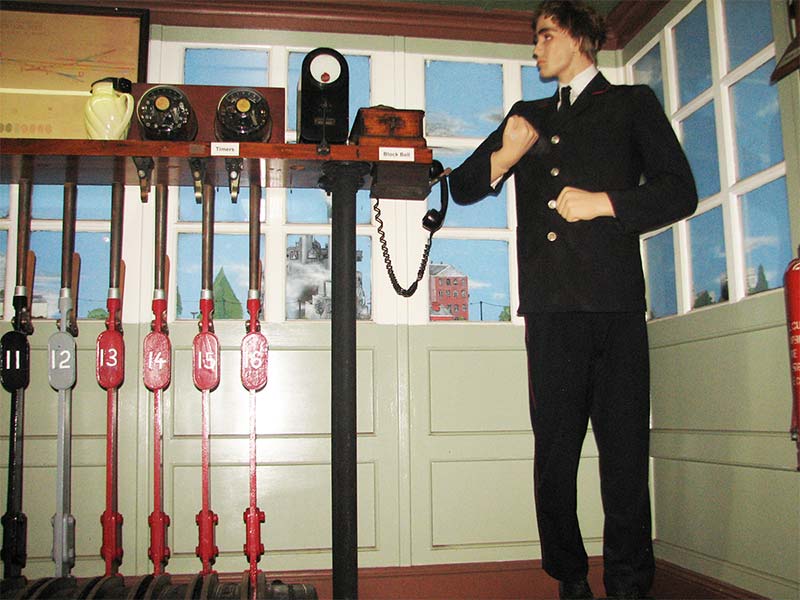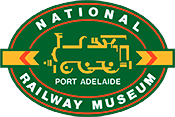Book A Visit
National Railway Museum
Book A Visit
Essential pre-visit information for Teachers and Schools

Format of the Educational Material
Educational packages are based on the rolling stock, exhibits, and travelling exhibitions, housed in the Fitch and Fluck Pavilion, Goods Shed and across the Museum site.
All material is available to teachers and students via the internet (Museum’s website).
Material is self-service, i.e. teachers choose from suggested projects and decide what is suitable for the age and ability of their students.
Teachers will be able to put together their own worksheets and activities for the students prior to their visit.
Project material is suitable for class years K to 7.
Summary of Research
The Educational Section has been designed in accordance to the statements and profiles of the state curriculum.
Department of Education Training and Development – Obtained Overview of SA Curriculum, Standards and Accountability Framework – understanding learning areas, how children are currently being taught and assessed.
Investigation of existing educational material from primary, secondary and online resources.
Museum Bookings
Admission fee – please contact the Museum. All teachers, parents and carers are free up to the ratio indicated by the Department for Education (see below). A free train ride is included in the price of admission. Train ride availability is subject to the train’s operational status. Telephone (08) 8341 1690 for bookings or further information.
Time – Planning
It is suggested that you allow approximately 60 – 90 minutes to make the visit effective.
Supervision and Behaviour
- Provide a sufficient number of adult supervisors for the age and ability of your children. Ratios Preschool to Year 2 1:6, Years 3-7 1:10, Years 8-12 1:15
- Adult supervisors (admitted free) are responsible for the supervision of the students and should remain with their students at all times. The Museum does not accept responsibility for any students left unattended
- Running is not permitted in the Museum
- Please remember that there are other visitors in the Museum e.g. other schools, families and tourists and we ask that students please keep noise levels down and consider the impact of their behaviour on other visitors
- Do not enter areas that are locked, chained or display restriction signs for safety and/ or security reasons
- Be careful when climbing on ladders and stairs – always use the hand rails when entering or exiting the exhibits. Where signposted, or where steps are steep, always face the exhibit when entering or exiting the exhibit. Do not climb on the boilers, or in the tenders of the locos
- Read the safety signs
- ‘Mind the gap’ – this is the space between exhibits and the platform
- Train rides – Please keep all parts of body within the confines of the carriage. Children must be supervised at all times
Lunch, Refreshments and Bag Storage
- You are welcome to bring food/drink and eat in the covered eating area
- There is no eating and drinking in the pavilions
- Bag storage arrangements can be made with the Museum volunteers in the Shop. No responsibility will be taken for loss/damage of valuables
Facilities
- Male, female and disabled toilets are adjacent to the eating area
- A water fountain is situated in the eating area
- Bookshop – Railway books, CD’s, DVD’s, souvenirs, ice-cream can be purchased
- Drink and snack machines are located within the Museum
- Pass-out tickets are available from the Shop
Museum Map
- Rolling stock exhibits are marked on the map
- Displays and exhibitions marked on the map
- Circumstances may occur whereby exhibits mentioned in this pack may not be accessible
- Train rides are free and depart from Callington station
First Aid/Emergency/Assembly Area/ Fire Exits
- The Museum has clearly marked exists throughout the site. For safety reasons the workshops and loco sheds are not open to visitors
- In an emergency, a announcement will be made over on the Museum PA system. Ensure all your group are present and make your way to the nearest fire exit as directed by signs and/or Museum staff/volunteers. The assembly point is outside the double Cyclone gates adjacent to the car park – refer to the map
- Report to the Bookshop if First Aid is required or you wish to report any issues. Schools should bring their own First Aider and Kit
Volunteers
All volunteers have undertaken a National Police Check and Working With Children Check.
Risk Management Plan
- Refer to the Hazard Awareness Table to assist teachers/group leaders in risk management planning for their education group excursion to the Museum
- Students should be briefed of hazards prior to the visit. Note this is only a guide
Area of site |
Possible Hazard |
Action |
| Museum site – outside | Trips, slips and fall Members of public present |
Close adult supervision Children not to run Safety signage |
| Pavilions | Trips, slips and fall Members of public present |
Close adult supervision Students to explore and learn in group environment rather than en masse |
| Rolling stock/exhibits | Trips, slips and falls Carriage steps up/down Members of public present Finger/s trapped in doors Hard train parts (buffers etc) |
Close adult supervision Children not to slam doors or windows No running in the pavilions Safety signage/barriers/chains Areas restricted for safety, e.g. locomotive cabs Signage – e.g. no climbing over/on the exhibits – locos Always use the hand rails when entering or exiting the exhibits. Where signposted, or where steps are steep, always face the exhibit when entering or exiting the exhibit |
| Exhibits – interactive | Pinch points,/levers Members of public present |
Adult to be present at all times Exhibits have safety guards |
| Train ride | Trip, fall Step up/down in the carriage Members of public present |
Close adult supervision Train driver/guard briefs the students prior to their ride |
| Toilets, Shop | Trips, slips and fall Members of public present |
Adult to be present at all times Children not to run |
| Rail crossings | Trip, fall, impact, crush | Close adult supervision Warning bells Safety signage – Look out for trains |
